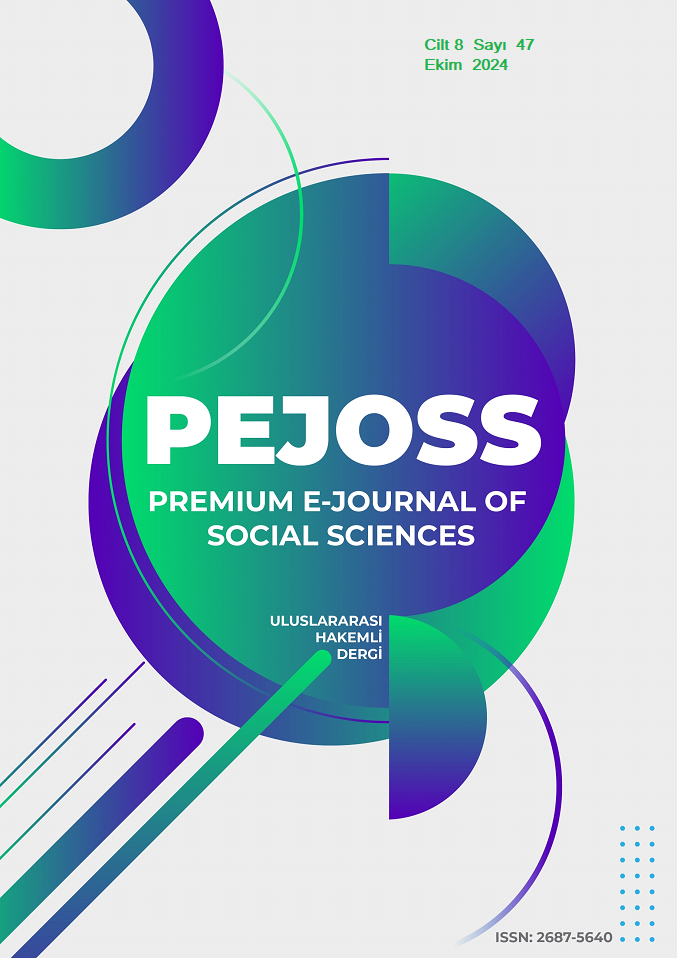National Characteristics in the Camera-Instrumental Works of Azerbaijani Composer Aqshin Alizade: A Theoretical Analysis of “Mugam Sadalari”
DOI:
https://doi.org/10.5281/zenodo.14020729Keywords:
Azerbaijan music, Agshin Alizadeh, Mugam Sadalari, chamber-instrumental, nationalityAbstract
Many composers have made their mark on the history of Azerbaijani music with their diverse creative legacies, skillfully benefiting from the achievements of their predecessors and enriching our musical culture, while creating their own unique styles. One such artist is the distinguished composer Agshin Alizadeh, who has created remarkable artistic works with his distinctive creative style. This article aims to investigate and reveal the national characteristics of Agshin Alizadeh's chamber-instrumental works. The main issue of the research was to explore Agshin Alizadeh's role in Azerbaijani music history and his use of national modes in his chamber-instrumental works.
Agshin Alizadeh stands out as an artist who interprets Azerbaijan's historical events, folk tales, and legends in a unique musical language. The individual style characteristic of the composer and the presentation of musical forms through unconventional compositional techniques are innovative features of Agshin Alizadeh’s mastery. In the realm of chamber-instrumental music, Agshin Alizadeh has written intriguing works based on a unique synthesis of national and modern elements. Examples of his works include “Cangi”, “Aşigsayagi”, “Mugam Sadalari”, and “Kamera” Symphony, among others. The composer is referred to as a “folk bard” for his ability to interpret the extraordinary beauty of folk creativity in his works. Agshin Alizadeh expresses his connection to his national roots through monumental music. His chamber-instrumental works are based on the principle of programmatic music, where each program title becomes a key indicator of the overall character of the piece.
In conclusion, it can be said that Agshin Alizadeh’s works provide a high-level depiction of the Azerbaijani people's heroic history and daily life. The innovative characteristics of his creativity, which involve a personal approach to and synthesis of both folk elements and modernity, are vividly manifested in his works. Most importantly, these innovative features are integrally synthesized in the composer’s works. The sense of nationality hidden within the overall spirit of his works is processed and refined using a modern creative style and neoclassicism techniques. In this sense, the artworks produced by Agshin Alizadeh are significant musical pieces that are part of the golden fund of Azerbaijani music culture.
Downloads
References
Abasova E., Mamedov N. (1978) Mugamlar ve Azerbaycan Sempfonizmi (Makomlar, Mugamlar ve Modern Bestecilik). Uluslararası Bilimsel ve Teorik Konferans. Taşkent, 10-14 Temmuz. (Абасова Э., Мамедов Н. (1978) Мугамы и азербайджанский симфонизм (макомы, мугамы и современное композиторское творчество). Международная научно-теоретическая конференция. Ташкент, 10 – 14 июля).
Abdullayeva, Z. (2009). Azerbaycan Müzik Edebiyatı. Adiloğlu Yayınları.
Aliyeva, F. (2003) Agşin Alizade. Musiqi dünyası, (1-2)., 21-23
Anadolu Ajansı. (2023). Azerbaycan’ın bağımsızlığının dönüm noktası “Kanlı Ocak”. https://www.aa.com.tr/tr/dunya/azerbaycanin-bagimsizliginin-donum-noktasi-kanli-ocak/2480231
İsmayılova, R. (2000). Azerbaycan Bestecilerinin Oran Müzikleri. Azerbaycan Devlet Yayınları.
Seferova, Z. (2019). Azerbaycan Müzik Tarihi Toplusu. Cilt IV. Elm Yayınları.
Tehmirazgızı, S. (2014, Mayıs 21). Agşin Alizadenin sirli musiki alemi “Medeniyyet” Gazetesi. https://anl.az/down/meqale/medeniyyet/2014/may/371467.htm
Downloads
Published
How to Cite
Issue
Section
License
Copyright (c) 2024 Premium e-Journal of Social Science (PEJOSS)

This work is licensed under a Creative Commons Attribution 4.0 International License.


